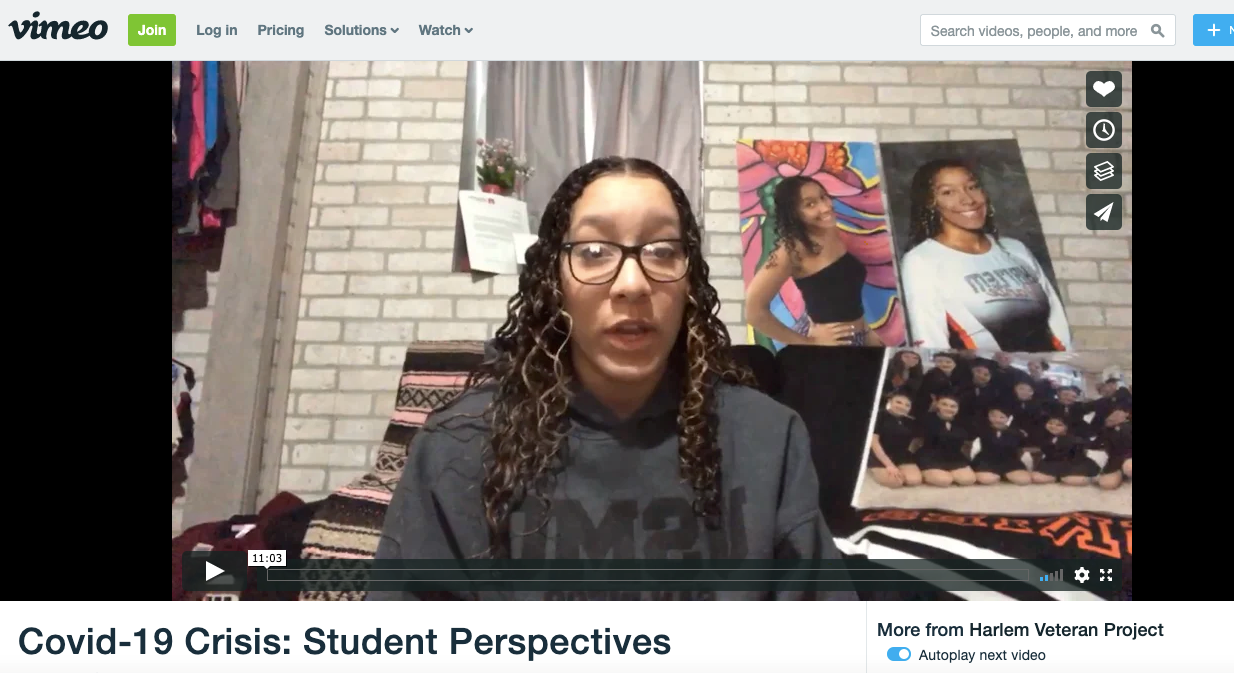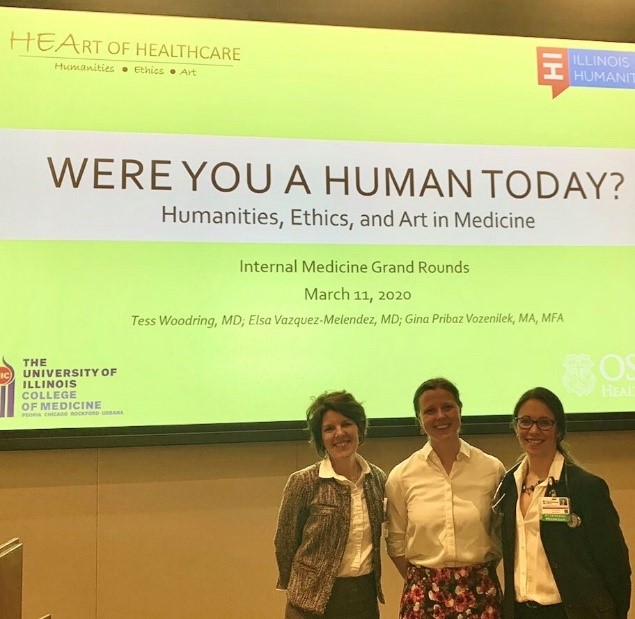Rising to Meet Rapidly-Changing Circumstances…
COVID-19 has begun to wreak havoc with Illinois nonprofit cultural organizations, producing setbacks such as job loss, cancelation of public events, a slowdown in fundraising, and an enormous loss of cultural opportunities for audiences. In fact, according to Arts Alliance Illinois, organizations will lose more than $84 million in revenue due to suspension of public-facing programs until the end of April, and closures are impacting some 20,000 events, 3,500 full-time jobs, and nearly 2.5 million audience members or participants.
But the remarkable story is this: how many of these cultural and humanities groups across the state are responding to difficult circumstances with agility and creativity. They may be postponing in-person events, but they’re also collaborating in new ways and harnessing digital tools in ways unthinkable just a month ago. Below are just a few examples of the remarkable ways with which Illinois Humanities Community Grants program partners are pivoting and adapting to daunting challenges; we plan to continue to report on this more in future blog posts.
Chicago Cultural Alliance (approved December 2018)
 With Illinois Humanities support, the Alliance worked with six organizations on “Stories of Im/Migration: Chicago.” Together they went through trainings in digitization, then digitized collections and published 100-200 objects on EXPLORE. The result is a cross-cultural toolkit that youth across the state can use to address bigotry and xenophobia. Kudos to the Alliance, and project partners Balzekas Museum of Lithuanian Culture, Chinese American Museum of Chicago, Filipino American Historical Society of Chicago, National Hellenic Museum, Polish Museum of America, and the Puerto Rican Arts Alliance.
With Illinois Humanities support, the Alliance worked with six organizations on “Stories of Im/Migration: Chicago.” Together they went through trainings in digitization, then digitized collections and published 100-200 objects on EXPLORE. The result is a cross-cultural toolkit that youth across the state can use to address bigotry and xenophobia. Kudos to the Alliance, and project partners Balzekas Museum of Lithuanian Culture, Chinese American Museum of Chicago, Filipino American Historical Society of Chicago, National Hellenic Museum, Polish Museum of America, and the Puerto Rican Arts Alliance.
However, since the Coronavirus hit, the Alliance has kicked into high gear to help its member organizations respond. Beginning with a virtual discussion with its members, it has since provided or planned webinars on digital storytelling with Vamonde, conducting oral histories virtually in partnership with volunteers, and a workshop on using social media more effectively.
Harlem High School, Machesney Park (approved December 2019)
 With an Illinois Humanities Action grant, Harlem H.S. faculty member Nicholas Stange and students in the Harlem Veteran Project class had begun to conduct video interviews with area veterans, in order to produce the full-length feature documentary “Take Your Own Notes.” Post-production meetings now happen through FaceTime. But a new project has risen in response to new circumstances – students are keeping video diaries of life under COVID-19. Take a look, it’s powerful footage, and Stange says the students plan to keep up these diaries as long as they are unable to go to school. As the Harlem students say on their Facebook page, “Wash your hands. Practice social distancing. Stay creative!”
With an Illinois Humanities Action grant, Harlem H.S. faculty member Nicholas Stange and students in the Harlem Veteran Project class had begun to conduct video interviews with area veterans, in order to produce the full-length feature documentary “Take Your Own Notes.” Post-production meetings now happen through FaceTime. But a new project has risen in response to new circumstances – students are keeping video diaries of life under COVID-19. Take a look, it’s powerful footage, and Stange says the students plan to keep up these diaries as long as they are unable to go to school. As the Harlem students say on their Facebook page, “Wash your hands. Practice social distancing. Stay creative!”
OSF Healthcare Saint Francis Medical Center (approved December 2019)
 The recipient of an Action grant, Peoria-based OSF HealthCare together with University of Illinois College of Medicine hosted a March 11 talk for 50 internal medicine faculty on findings from their study of the impact of bedside reflective writing and the value of humanities in healthcare. However, since the Coronavirus crisis hit, the auditorium where this talk took place is now the OSF HealthCare Pandemic Digital Response Hub. A member of this HEArt of Healthcare humanities team is now taking a lead role in a National Organization for Arts in Health creative response to the pandemic.
The recipient of an Action grant, Peoria-based OSF HealthCare together with University of Illinois College of Medicine hosted a March 11 talk for 50 internal medicine faculty on findings from their study of the impact of bedside reflective writing and the value of humanities in healthcare. However, since the Coronavirus crisis hit, the auditorium where this talk took place is now the OSF HealthCare Pandemic Digital Response Hub. A member of this HEArt of Healthcare humanities team is now taking a lead role in a National Organization for Arts in Health creative response to the pandemic.